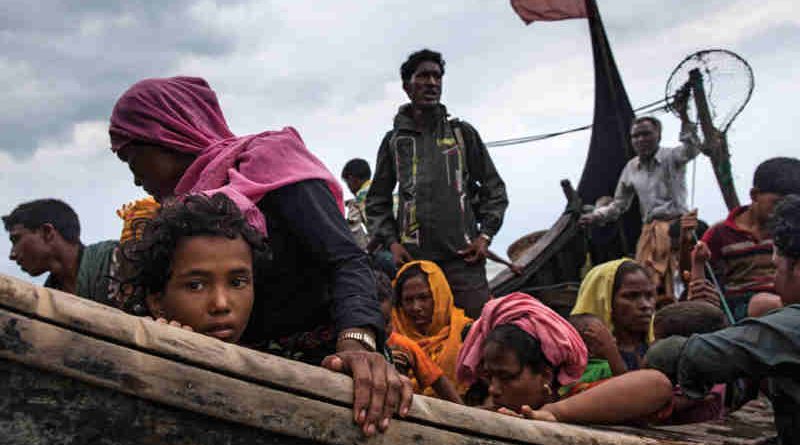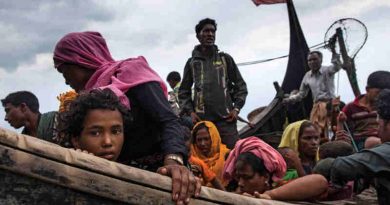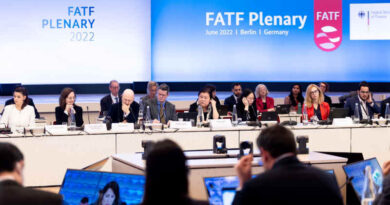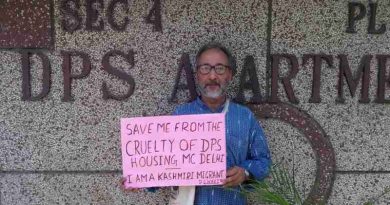UN Experts to Release Report on Human Rights Violations in Myanmar
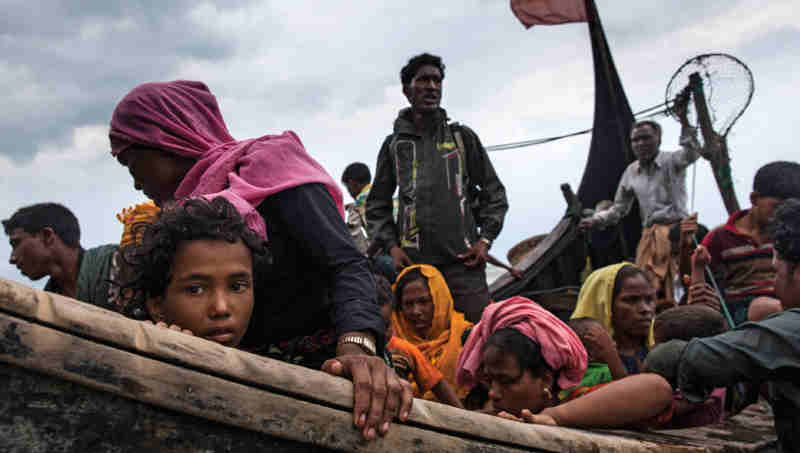
United Nations human rights experts have concluded a five-day visit to Bangladesh, where they met newly arrived Rohingya refugees from Rakhine State, Myanmar, in the final weeks before the publication of their comprehensive written report.
This visit of the Human Rights Council-mandated Fact-Finding Mission on Myanmar to Bangladesh provided an opportunity for its experts and their team of investigators to hear fresh accounts of abuse and violence committed against the Rohingya in Myanmar, including those who recently arrived in Bangladesh. This is the second visit by the experts themselves, supplementing the investigations undertaken by their staff continuously since September 2017.
Among the new arrivals that the experts spoke with were those better off financially than the earlier arrivals. They referred to the overt threats they faced of violence and persecution, being cut off from their sources of livelihood, and the overall menacing environment that finally compelled them to leave for Bangladesh. The arrivals of new refugees reflects the continuing gravity of the human rights violations in Myanmar.
“The trip we undertook this week is our final field mission under our mandate,” remarked Marzuki Darusman, former Indonesian Attorney General and Chairperson of the Fact-Finding Mission. “We started our fact-finding work here in Bangladesh, and we now finish here in the run up to the report we will be presenting to the Human Rights Council in September. The many victims we have spoken with have been asking questions about their future. The solution is to alleviate their suffering, to respect law and ensure justice.”
During their visit to the Bangladeshi coastal town of Cox’s Bazar between 16 and 19 July, the experts interviewed Rohingya refugees in the Kutupalong camp, the world’s biggest refugee camp with a population of one million and counting, and also the most densely populated.
Over 700,000 of these have been forced to settle in the camps following the ‘clearance operations’ of the Myanmar military that commenced on 25 August 2017. The visit comes during the monsoon season in Bangladesh, which has greatly increased the dangers and distress refugees face.
In Cox’s Bazar and in Dhaka, the experts also met with officials in the Government of Bangladesh, and various intergovernmental and non-governmental organizations. The experts previously visited Bangladesh in October last year, some weeks after the late August violence in neighbouring Rakhine State sparked a mass exodus of Rohingya victims. This week’s visit made it possible for the experts to see first-hand how their situation has evolved since last year and their current living conditions.
Expert Radhika Coomaraswamy from Sri Lanka, former Special Representative of the UN Secretary-General on Children and Armed Conflict, is leading the Mission’s work on sexual and gender-based violence.
This week she heard from men who suffered from torture in detention. Those she met with expressed an increasing anxiety about their future. “The young men I spoke with were particularly anxious, showing signs of deep trauma. Without education and livelihood I fear for their future.”
The Independent International Fact-Finding Mission on Myanmar was established by the Human Rights Council in March 2017 “to establish the facts and circumstances of alleged recent human rights violations by military and security forces, and abuses, in Myanmar, in particular in Rakhine State”.
The third expert, Christopher Sidoti, the former Australian Human Rights Commissioner, noted how the type of “profound suffering” experienced by the Rohingya was evident in other parts of Myanmar.
The three-member Fact-Finding Mission is supported by a team of investigators and other specialists, who have conducted many intensive missions over the past year to Cox’s Bazar and other locations.
The Fact-Finding Mission is scheduled to present its findings to the Human Rights Council in Geneva on 18 September. It has previously presented three oral updates to the 47-member Human Rights Council – in September and December 2017, and March 2018.

